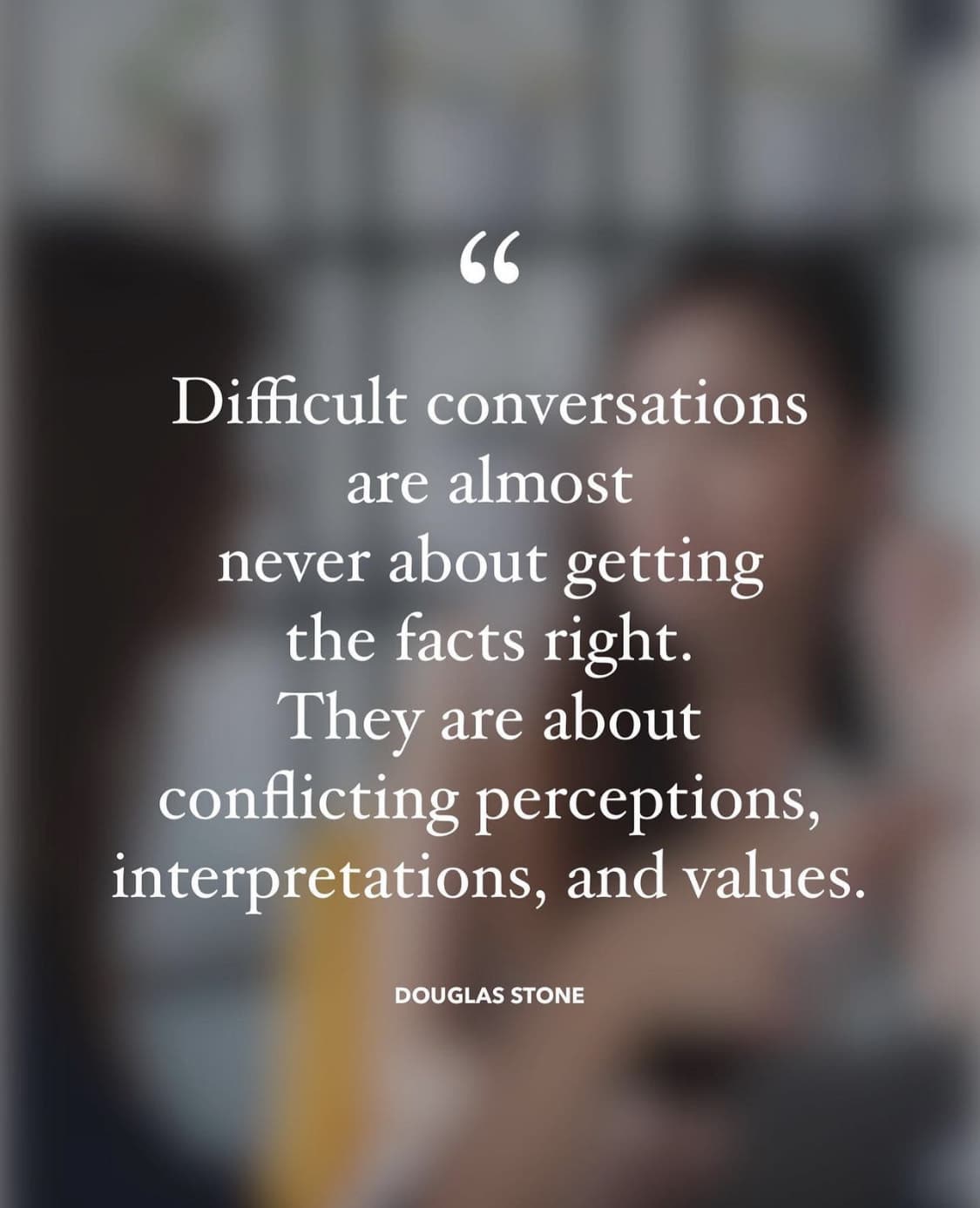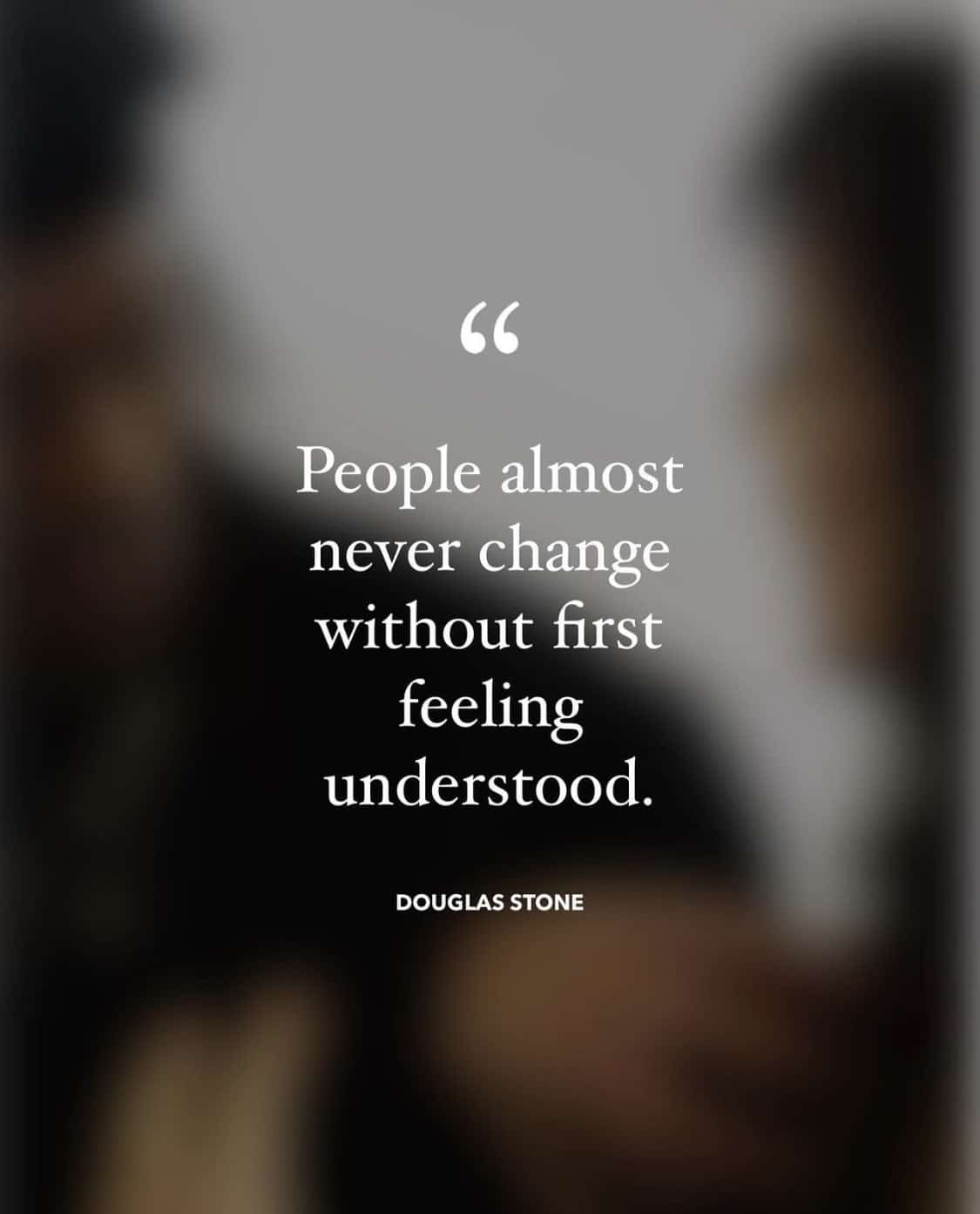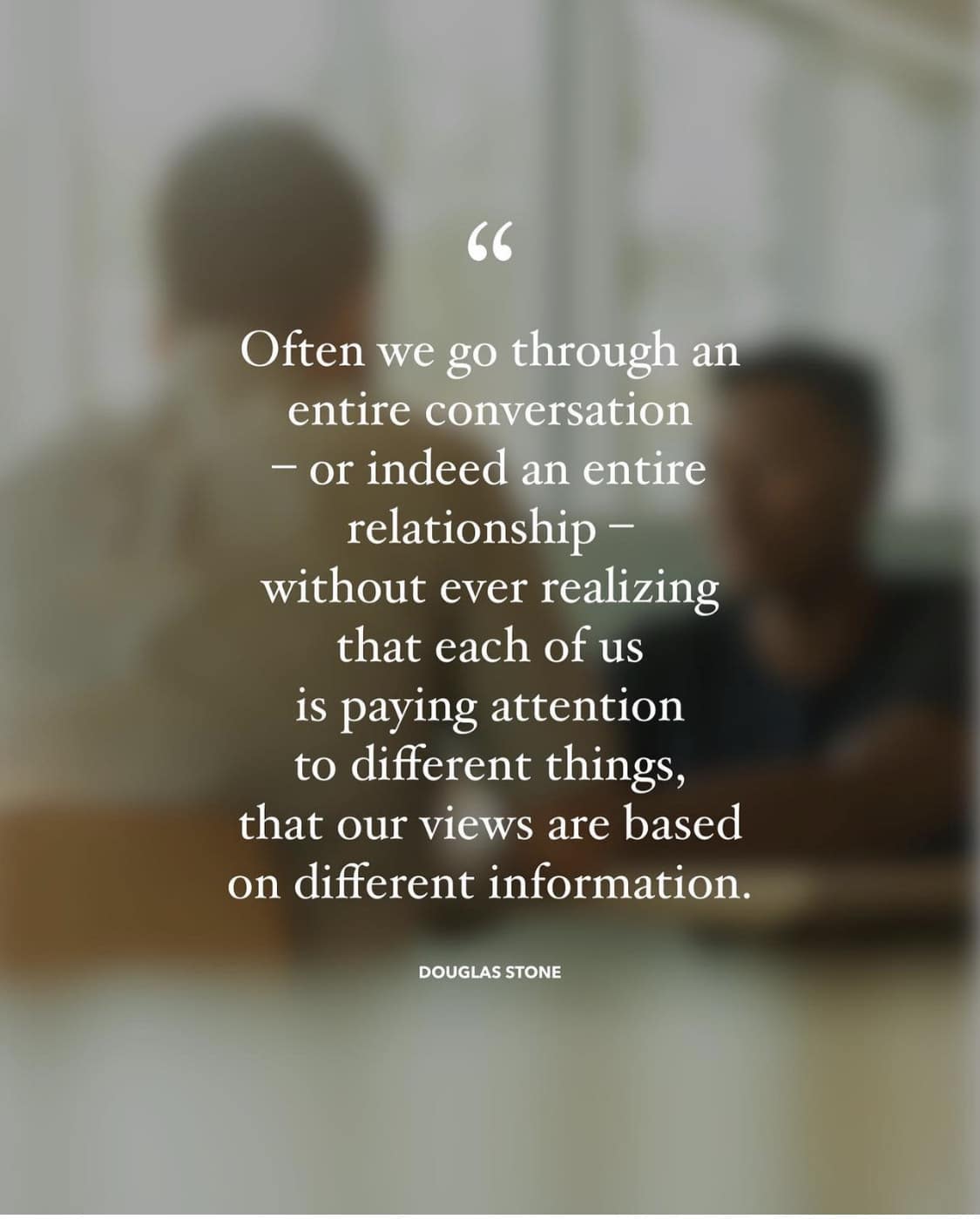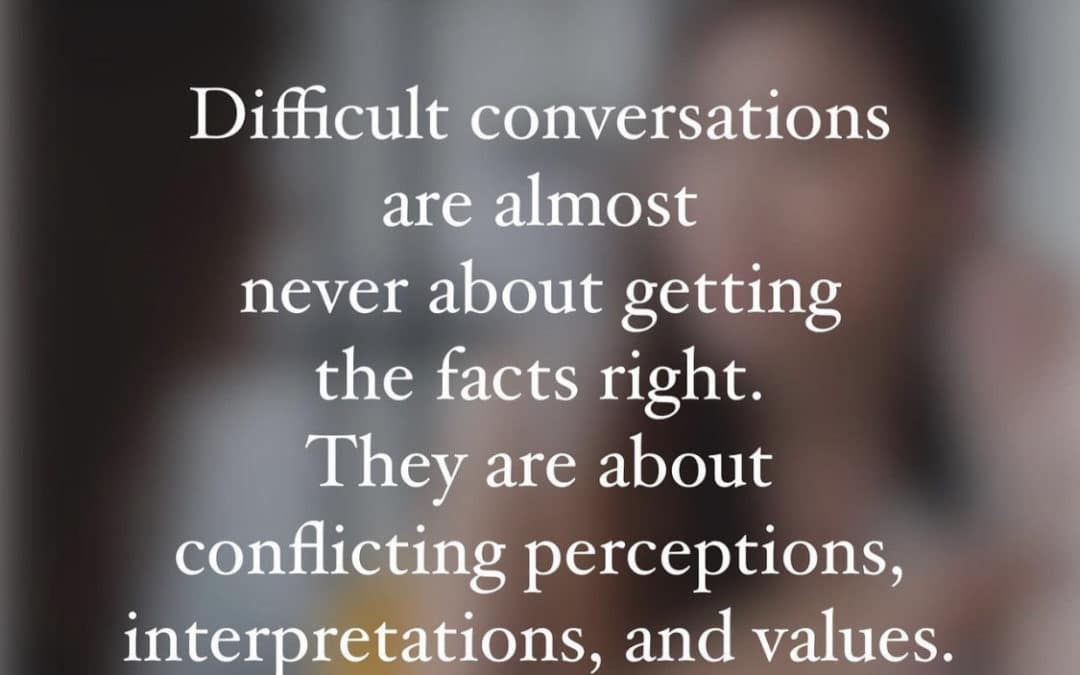 When clients share something difficult about a relationship in love or work, I sometimes ask this question”
When clients share something difficult about a relationship in love or work, I sometimes ask this question”
“Have you had a conversation with them?”
Often, the response is “no.” It’s across the type board, although certain Enneagram types are more avoidant.
Why do we avoid hard conversations?
Some factors:
- We fear a loss of connection
- We feel misunderstood/ judged,
- We are afraid and lack certainty about how the person will receive feedback,
- We have a past experience w/someone that went bad,
- We don’t feel like we have the energy,
- We don’t want to cry or get angry,
- We’ve tried before and nothing changed,
- We feel shame or insecurity,
- The person is highly defensive and not receptive….
- What else?
If the quality of our lives is determined by the quality of our relationships and the quality of our relationships is often determined by the quality of our conversations, this is helpful and meaningful to explore together.
Begin by asking yourself, Given my type, what’s my conversational Achilles heel when I’m in a reactive state?
ARE DIFFICULT CONVERSATIONS POSSIBLE?
It depends especially when we consider our different Enneagram styles. We bring a lot of shadow and baggage into conversations and I’ve found many people (especially women) are avoidant as they don’t want to cause harm. So, consider some suggestions and test them out.
BEGIN BY PAYING ATTENTION TO YOUR BODY
This is so important. An Enneagram 6 posted on social media that she literally is frozen and can’t speak when giving feedback. We need to attend to our bodies.
- Slow down and shift to a receptive state (rather than active where you jump in).
- Focus your attention on your heart. Breathe the counter-anxiety breath which is a nice long exhale that calms your nervous system.
- Feel your feet. Ground.
Next, try C.O.I.N.
SET CONTEXT
- CONTEXT is everything. Start there. Give the wider picture. We had a 2 hour conversation at dinner on Tuesday night. When we planned the dinner, I had just been through a difficult time and was feeling both drained by all of it and looking forward to seeing you as you’re important to me.
OBSERVABLE BEHAVIORS
- Say the OBSERVABLE behaviors. In those 2 hours, you didn’t ask me any questions about myself. You talked about the situation with your sibling for 45 minutes. Once the food came, you shared what was going on at work with your boss and told me about a lot of people in your workplace who I don’t know. (Don’t make assumptions about the observable behaviors. This is observation time).
IMPACT AND CHECK IN
- Identify the IMPACT of the behavior. The impact is I walked away feeling tired and depleted. You’re important to me and I don’t want to avoid hanging out. That’s why this was important for me to tell you.

- Now PAUSE. Listen to what is up for them. Ask questions. (Be patient if they’re a type who needs time to figure out what they’re feeling. They may feel embarrassed and overwhelmed. Don’t personalize their feelings).
- Accept differences in perceptions. It’s not about agreement. It’s about walking in their shoes.
- Assume good intent.
- Don’t make assumptions.
- Be mindful of owning their projections onto you. The above BODY exercises can be helpful in maintaining neutrality. It’s their experience. Validate their perspective (Understanding ≠ Agreement).
NEXT STEPS:
- Decide how to move forward.Recipient of feedback might say: If you can let me know when I’m talking too much, that would be helpful. I will also work on paying attention to ways I get caught up in my own life and make sure I check in with you.
 Person who gave the feedback might say: I will try to be more courageous about telling you in the moment. That’s really hard for me. Would you be alright if I circled back after we meet?
Person who gave the feedback might say: I will try to be more courageous about telling you in the moment. That’s really hard for me. Would you be alright if I circled back after we meet?Work out a plan that works for both of you. If you both know your Enneagram types, consider sharing the best approach for bringing hard things to you.
We bring shadow and baggage into a relationship, but we can re-learn how to have crucial conversations.
The Enneagram is powerful in seeing how we show up conversations. We are noticing very different things.
Be kind to yourself and accountable to yourself and others in this exploration.
JOIN US FOR THE ENNEAGRAM AND RELATIONSHIPS WORKSHOP: GROWING THROUGH DISCOMFORT
FEBRUARY 25-26, 2023

